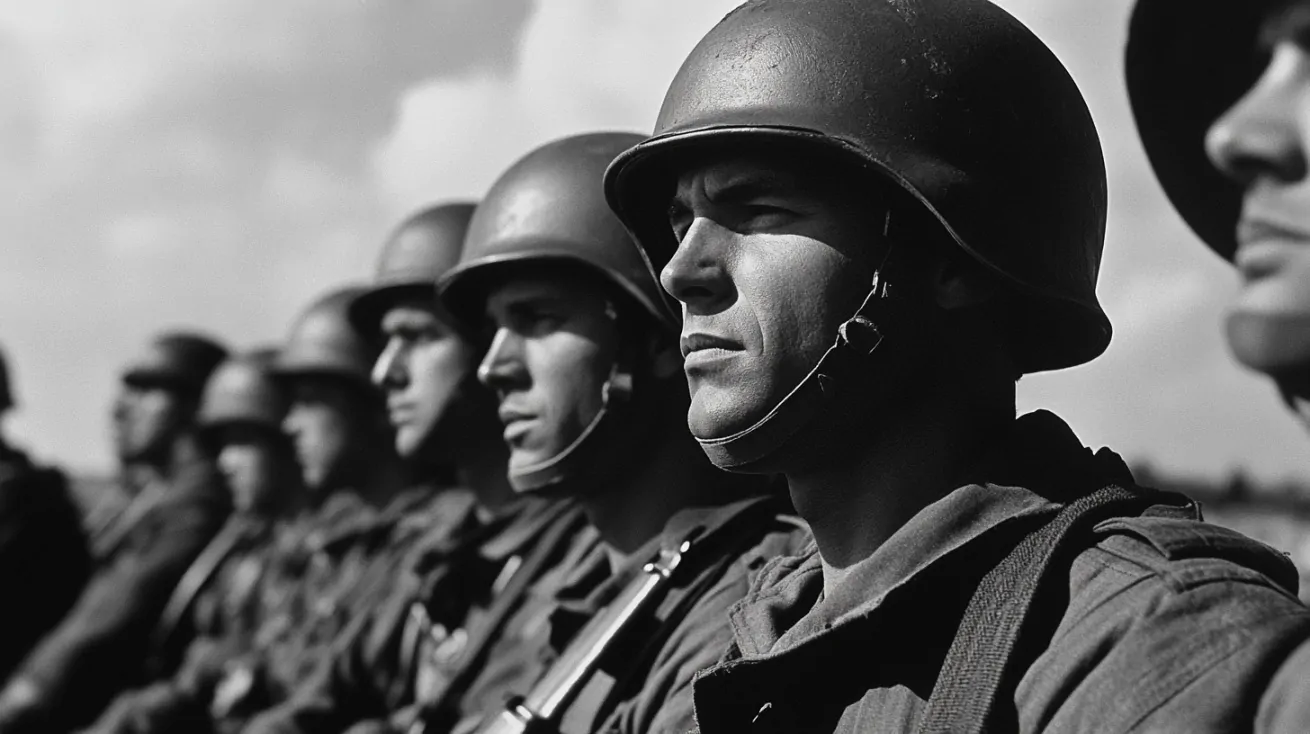A 12% acceptance rate can discourage even the most ambitious high school students. That number alone makes West Point appear inaccessible, reserved only for a select few.
Despite the low percentage, candidates who meet key qualifications are not facing impossible odds. A look at what West Point expects shows that with strong preparation, applicants can absolutely compete.
Academic performance, leadership skills, physical strength, and character carry more weight than sheer numbers.
Table of Contents
ToggleWhat It Takes to Be a Competitive Applicant
Gaining admission into West Point requires more than solid test scores or athletic ability.
- Academic
- Physical
- Medical
Each part of the evaluation process filters out those who are unprepared for the mental, physical, and emotional demands expected of cadets.
Academic Requirements

Strong academic records are non-negotiable. High school coursework must reflect rigor and consistency over time.
Straight A’s in honors, AP, or IB courses send a clear message to admissions officers: the candidate can handle pressure and stay disciplined.
Expectations for GPA and standardized test scores are demanding. West Point values technical subjects and places a heavier weight on math and science during evaluations.
- GPA: 4.0 average among admitted cadets. Nearly all courses should reflect top marks.
- Class Rank: Top 10–15% is typical among successful applicants.
- Course Load:
- AP Calculus or AP Statistics
- Advanced science courses like AP Physics or Chemistry
- Honors English and history classes
- SAT Range: 1230–1430, with 1331 as the average
- ACT Range: 27–33, with 30 as the average
Higher math and science scores carry more weight than reading and writing.
Performance in technical sections provides an edge, aligning with the academy’s curriculum focus.
Achieving these academic milestones demonstrates intellectual readiness and the capacity to excel under pressure.
Physical & Medical Qualifications
Academics are only part of the equation. West Point also trains future military officers, so candidates must be physically and medically prepared to serve.
The Candidate Fitness Assessment (CFA) evaluates strength, speed, and endurance. Preparation should begin months in advance to ensure results meet or exceed expectations.
- Basketball throw (measures core and upper-body power)
- Pull-ups (or flexed-arm hang for females unable to do pull-ups)
- Shuttle run (tests agility and quickness)
- Modified sit-ups (performed in two minutes)
- Push-ups (performed in two minutes)
- One-mile run (tests cardiovascular endurance)
Recently, the @10MTNDIV conducted their Expert Physical Fitness Assessment at Al Tanf Garrison, Syria. The EPFA is a combat-focused physical assessment conducted in the Army that test the strength, endurance, and speed required for military operations.#Army250 @CJTFOIR @USArmy pic.twitter.com/x0msv6kha6
— FORSCOM 🇺🇸 (@FORSCOM) March 18, 2025
Minimum passing scores are not published, but high performance across the board boosts competitiveness. Inconsistent results signal a lack of preparation, which can jeopardize an otherwise strong application.
Medical readiness is equally strict. Clearance through the Department of Defense Medical Examination Review Board (DoDMERB) is required for all applicants.
- Poor vision not correctable to standard
- History of asthma after age 13
- Certain orthopedic injuries or chronic joint problems
- Neurological conditions, including a history of seizures
- Significant mental health diagnoses
DoDMERB will arrange for an exam once the candidate has progressed far enough into the admissions process. Waivers are possible in some cases, but they are never guaranteed.
Physical and medical strength prove a candidate’s ability to endure the demands of cadet life and military service. Meeting those standards reinforces commitment and builds confidence in a candidate’s readiness for the path ahead.
Leadership, Character, and Readiness

Academic scores and physical tests only capture part of what West Point evaluates. Officers are looking for individuals who can lead under pressure, remain composed in unpredictable conditions, and serve with integrity.
Evidence of these qualities often comes through what applicants do outside the classroom.
Leadership, extracurricular commitment, and character assessment all play a vital role in shaping the final admission decision.
Leadership Potential
Leadership takes many forms, but tangible demonstrations of responsibility, initiative, and influence carry the most weight.
Titles matter less than proof of consistent action and effective guidance in group settings.
Participation in structured environments signals readiness for West Point’s demands.
- Team captain roles in sports or academic competitions
- Student council officer positions
- Club founders or presidents
- Leadership within JROTC units
- Peer mentorship programs or tutoring initiatives
In addition, candidates who attend West Point’s Summer Leaders Experience (SLE) gain valuable exposure to the academy’s expectations.
Performance during SLE reflects directly on a candidate’s ability to handle mental and physical challenges under supervision.
Extracurricular Involvement
Consistency in extracurriculars shows more value than a packed resume. Reviewers look for responsibility, growth, and long-term investment.
A few focused commitments, sustained over multiple years, make a stronger case than scattered short-term activities.
- Multiple years on a sports team, ideally with increasing responsibilities
- Ongoing participation in a community service initiative or nonprofit group
- Work experience that requires time management and accountability
- Continued engagement in school clubs tied to service, academics, or leadership development
Reliable participation over time communicates discipline. Applicants who contribute steadily, without chasing recognition, are often seen as dependable and mission-aligned.
Personal Character
Officers assess personality traits through written materials and personal interactions. Essays reveal intent, motivation, and emotional maturity.
Letters of recommendation provide a third-party view into daily conduct, relationships with authority, and consistency under pressure.
- Sense of duty and willingness to serve
- Ability to overcome setbacks or adversity without excuse-making
- Accountability in academic and personal decisions
- Respect for others, including those in leadership positions and peers
- Emotional stability and capacity for growth under stress
Interview performance matters as well. Thoughtful responses, clear articulation of goals, and respectful demeanor leave a lasting impression on West Point field force members or officers conducting assessments.
These three traits are absolutely essential for being successful at being admitted and eventually graduating from West Point.
When it comes to graduation, announcements and invitations should be conducted in a particular way. If you want to learn more about the right way to do it, click here.
The Nomination Requirement
Admission to West Point requires more than strong academics and fitness scores.
Every candidate must secure an official nomination—without it, applications cannot proceed to final review. Securing one involves planning, persistence, and strategic outreach.
What It Is
Nominations serve as endorsements by designated officials. These are limited and competitive.
- U.S. Representative or Senator
- Vice President of the United States
- President of the United States (typically reserved for children of military personnel)

Most applicants focus on congressional nominations, which are more accessible geographically and process-oriented. Each office has its own selection committee and evaluation methods.
Tips for Success
Preparation should begin during junior year, ideally by spring. Congressional offices often close nomination applications early in senior year, sometimes as early as September.
- Research each nominator’s application process (requirements vary)
- Submit all materials by the stated deadlines—late files are usually disqualified
- Secure multiple strong letters of recommendation
- Prepare for an interview if one is part of the process
- Apply to every eligible source, including both senators and your district representative
Multiple nominations are allowed and often necessary due to limited slots. Each member of Congress can nominate up to ten candidates per vacancy.
Application Components and Timeline
Success at West Point starts with organized planning. Every element of the application reflects effort, precision, and consistency. A missed step can delay or derail the entire process.
Candidates should gather their application components starting in 11th grade. Materials are reviewed on a rolling basis, but all submissions must be finalized by January 31st of senior year.
- High school transcript showing course rigor and GPA
- Official SAT or ACT scores, submitted directly
- Candidate Fitness Assessment (CFA) results
- Medical exam clearance through DoDMERB
- Letters of recommendation from teachers, mentors, or coaches
- Personal essays reflecting motivation, leadership, and service
- Nomination documentation from a qualified source
Each piece provides another window into a candidate’s readiness.
The @10MTNDIV conducted their Expert Physical Fitness Assessment at Al Tanf Garrison, Syria. The EPFA is a combat-focused physical assessment that tests the strength, endurance, and speed required for military operations.@CENTCOM @usarmycentral #CJTFOIR #Strength #Resilience pic.twitter.com/isj6GirIgb
— Operation Inherent Resolve (@CJTFOIR) March 18, 2025
Important Steps
Initial contact with West Point begins through the Candidate Questionnaire, typically opened during the junior year.
Submitting this form starts the file and determines preliminary eligibility. Approval gives access to the full application portal.
After access is granted, focus shifts to performance.
- Applicants can submit multiple SAT test dates
- Officers will take the highest individual section scores across all submitted dates
- A stronger composite score is calculated to benefit the applicant
Multiple rounds of SAT or ACT testing are encouraged. Repeating tests strategically allows applicants to strengthen their academic profile.
Planning, precision, and follow-through separate those who finish the process from those who fall short. Success isn’t built on talent alone—it comes down to execution.
The Bottom Line
Admission into West Point reflects excellence in multiple areas, not luck. Though only a small portion of total applicants receive offers (the military only accepts a certain number of applicants), most who are well-qualified stand a fair chance.
Effort matters. Focused preparation in academics, athletics, leadership, and ethical conduct gives applicants the edge they need. A strong file speaks louder than statistics.
Related Posts:
- What Are the Basic Requirements to Get Into the…
- Rank by Rank - Inside the US Air Force Officer Hierarchy
- What Does 1B4X1 Stand For? An Inside Look at Cyber…
- Inside the MQ-9 Reaper UAV - Features and Applications
- What Benefits Do You Get After 4 Years of Military Service
- How Long Do You Have To Be In The National Guard To…







